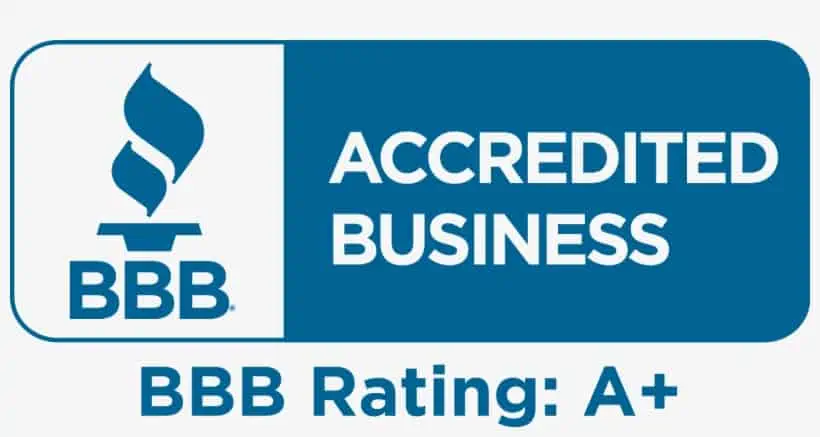
While a Self-Directed 401k with checkbook control is not required in order to gain access to investing in alternative investments such as real estate, precious metals, trust deeds, tax liens, private company shares (passively only) and even foreign real estate in places such as China, Italy, Greece, Mexico, Costa Rica, Canada, India, etc., if you decide to add the checkbook control feature to your Self-Directed 401k make sure to first understand the do’s and don’ts of of Self-Directed 401k checkbook control.
Background: Self-Directed 401k
Before discussing the do’s and don’ts of Self-Directed 401k with checkbook control, let’s first compare the Self-Directed 401k vs Self-Directed 401k checkbook control.
Self-Directed 401k Defined
Used to describe a 401k for the self-employed that names him or her as trustee of the 401k and includes specific language in the Solo 401k plan document allowing for alternative investments and for the trustee to self-trustee the assets of the Solo 401k. Alternative investments include real estate, tax liens, commodities, private equity, promissory notes, etc.
Self-Directed 401k Checkbook Control Defined
Just like a Self-Directed 401k, the self-employed business owner has control over the investment decisions of his or her Self-Directed 401k and thus has the option to invest in alternative investments such as real estate, precious metals, tax liens, promissory notes, commodities, private company shares; however, investment purchases are made by writing a check from the Self-Directed 401k bank account-hence why it’s commonly referred to as Self-Directed 401k checkbook control.
The Do’s and Don’ts of Self-Directed 401k Checkbook Control
The Do’s
- Do open checking account in the name of the Self-Directed 401k not your personal name as it will be considered an immediate and taxable Self-Directed 401k distribution.
- Do open multiple Self-Directed 401k checking accounts if both Solo 401k trustees will be making contributions to the Solo 401k, and/or one or both trustees will be making both traditional and Roth Solo 401k contributions.
- Do deposit gains from the self-directed 401k investments ; for example, real estate gains such as rents or proceeds from the sell of real-estate property.
- Do pay expenses associated with investments held in the Self-Directed 401k, such as rental property repairs.
- Do make annual Self-Directed 401k contributions to the Self-Directed 401k checking account(s). Note that if both trustees are participating in the Self-Directed 401k, each respective trustees’ contributions need to be deposited in their respective Self-Directed 401k checking accounts.
The Don’ts
- Do not deposit personal funds in Self-Directed 401k checking account(s) unless they are truly Self-Directed 401k contributions from self-employment income and you qualify to make them.
- Do not obtain credit card in the name of the Self-Directed 401k or in your name.
- Do not deposit funds from Self-Directed 401k to your IRA without first checking with your Solo 401k provider if the rules allow for it or without filling out the necessary forms and understanding that it’s a reportable transaction to the IRS on Form 1099-R using letter “G” in box 7.
- Do not pay personal expenses with funds from your Self-Directed 401k as it’s considered a taxable distribution.
- Do not pay your self a salary with funds from the Self-Directed 401k as it will considered a prohibited Solo 401k transaction.
- Do not commingle Roth Self-Directed 401k contributions and investment gains with Traditional Self-Directed 401k funds.
- Do not process Solo 401k Loan without firs having your Solo 401k provider prepare Solo 401k participant loan documents and payment schedule that conforms with the IRS Solo 401k rules.
Advantage QUESTION:
Is there an advantage of having the checkbook for my solo 401k trust in my retail bank versus an investment firm like Fidelity Investments?
ANSWER:
Having a brokerage account allows for investing in traditional investments (e.g. mutual funds, stocks, etc.) that you can’t invest in via a bank. Having a bank account allows for access to bank checks & a debit card. You can have both a bank and a brokerage account as long as both holding accounts are opened in the name of the solo 401k trust using the trust’s EIN for reporting purposes.










11 Comments
I have a single owner s-Corp and set up a solo-401k. I plan to max out contributions but am confused on one point. I know my employee contributions must the added to my W2 through payroll but what I do not know is if I have to run the payroll first before actually contributing the funds. OR as long as I report the total contribution before the end of the year is it ok? As in I contribute $5000 in three different months and report it before the end of the year or do I need to report the $5000 then transfer the funds each time?
Because a solo 401k plan is not a full-time employer 401k so it is not subject to ERISA, you have until your business tax return due date plus extension to make both the employee and employer profit sharing contributions. Contributions can be made periodically or in one lump sum by the above deadline. The annual solo 401k contribution limits depends on the type of entity sponsoring the solo 401k plan. If the entity type is a C-Corporation, it is equal to W-2income from your self-employed business (“Box 1 plus any pre-tax elective deferrals NOT in Box 1).
If the entity type is an S–Corporation, it is equal to W-2income from your self-employed business (“Box 1 plus any pre-tax elective deferrals NOT in Box 1). The self-directed 401k contribution deadlines are based on the type of entity sponsoring the solo 401k. If the entity type is an S-Corporation (calendar year), the annual solo401k contribution deadline is March 15, or September 15 if tax return extension is timely filed.
If the entity type is an C-Corporation (calendar year), the annual solo401k contribution deadline is April 15, or September 15 if tax return extension is timely filed.
I have a single member LLC and currently take owner draws from the business. I do not pay myself a salary through a w-2. Can I still contribute to the employees salary deferral portion of my solo 401k? If so with out a w-2 paycheck how do I correctly do that? Thank you so much for all of this incredible information. Sven
I have a CD that is maturing at year end in my IRA.
I also am a minority owner of a LLC (LLC#1) that owns another LLC (LLC#2). The LLC#2 owns Rental Real Estate. If I set up a self directed 401K, would I be allowed to loan money from my matured CD by simply refinancing out/paying off the Mortgage of Real Estate owned by LLC#2.
No because of the prohibited transaction rules. See the following: https://www.mysolo401k.net/solo-401k/prohibited-transactions-solo-401k/
I have a solo 401k. I want to take out a loan to invest in/purchase an online store. Can I do that? If I have $50K total in my solo 401k and borrow the max of 50% ($25K). Do I have use of $75K to invest?
Thank you very much.
Yes, the solo 401k rules do allow for solo 401k participant loans.
Following are some quick facts regarding the solo 401k participant loan rules.
Each participant can borrow from the solo 401k provided each has a solo 401k balance; however, the solo 401k loan calculation is based on each solo 41k participant’s respective loan balance–not the entire value of the solo 401k plan.
The solo 401k loan does not affect your personal credit or business credit score because you are borrowing from the solo 401k plan; therefore, there is no credit check.
The Solo 401k loan term is 5 years for general loans.
The Solo 401k loan term can be more than 5 years not to exceed 15 years if used to purchase principal residence for you as trustee/participant of the Solo 401k.
Solo 401k loan payments are made either monthly or quarterly.
Solo 401k annual contributions from self-employment income cannot be used/applied towards payment of solo 401k participant loans.
Solo 401k participant loan payments must be made with personal funds, not business funds or solo 401k funds.
Since the solo 401k participant is borrowing from the solo 401k plan, at time of loan the loan proceeds must flow to the solo 401k participant’s bank account, not her business. Once the funds are in your personal bank account, you can then disburse them however you wish including placing them in your own business bank account.
The interest rate for Solo 401k loan is either: A certificate deposit rate plus 2 percent or the prime rate plus 1 percent.
Solo 401k Loan payments are fixed payments consisting of interest and principal
Solo 401k loan rules do not allow for Interest only payments or principal payments only.
Each solo 401k participant can borrow from his or her respective solo 401k balance. For example, if both spouse’s are participating in the solo 401k plan and have account balances, each can borrow up to the statutory limits described below.
The maximum Solo 401k loan amount is either 50% of account balance or maximum amount of $50K.
– Example 1: Solo 401k balance is $50K; 50% of $50K = $25K (the Solo 401k maximum loan amount)
– Example 2: Solo 401k balance is $150K; 50% of $150K = $75K; however, the maximum permitted Solo 401k loan amount is $50K
– The minimum Solo 401k loan amount is $1,000.
The Solo 401k rules require the following proper Solo 401k loan documentation:
– Solo 401k Loan Agreement
– Solo 401k Loan Application
– Solo 401k Loan Payment Amortization Schedule
You can obtain more information regarding borrowing/taking a participant loan from a Solo 401k at: https://www.mysolo401k.net/Solo401kLoan.html
I am also a single member llc that only takes owner draws as salary, how do I deposit these funds into the solo k correctly.
Contributions to a solo 401k must be based on net self-employment income from your business.
IMPORTANT: The annual solo 401k contribution limits depend on the type of entity sponsoring the solo 401k plan.
If the entity type is a Sole Proprietor, it is equal to line 31 of Schedule C(after deducting one-half of self-employment tax).
If the entity type is a C-Corporation, it is equal to W-2income from your self-employed business (“Box 1 plus any pre-tax elective deferrals NOT in Box 1).
If the entity type is an S–Corporation, it is equal to W-2income from your self-employed business (“Box 1 plus any pre-tax elective deferrals NOT in Box 1).
If the entity type is a Partnership, it is equal K-1 (Form 1065) line 14 from your self-employed business (after deducting one-half of self-employment tax).
Hello Funds have been transferred from work 401k to self directed solo401k to llc.
Will I be able to use debit card or check to withdraw some funds from llc to personal account?
While a solo 401k may invest in an LLC (aka solo 401k llc: https://www.mysolo401k.net/the-process-of-investing-a-solo-401k-plan-in-a-single-member-llc/) for solely placing allowed passive solo 401k investments even though such investments may be made under the solo 401k instead, NO you cannot distribute funs from the solo 401k funded LLC for personal use as such a transaction would result in a prohibited transaction.https://www.mysolo401k.net/solo-401k/prohibited-transactions-solo-401k/